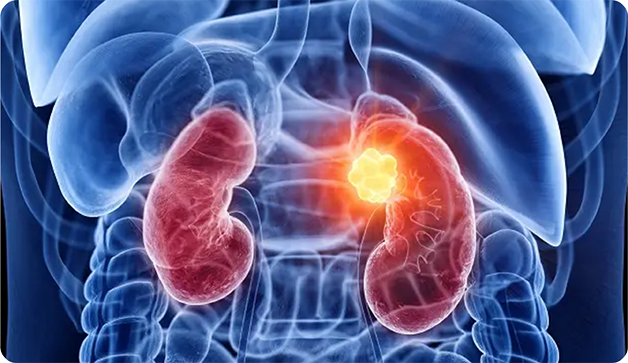Kidney Cancer/ Renal Cancer
Abnormal growth in the kidneys leads to kidney or renal cancer. It is one of those cancers that can be easily treated as well as have excellent survival rates.


Types of Kidney Cancer
Depending on the type of cell, kidney cancer is of the following types:
- Renal Cell Carcinoma (RCC): This is the most common type which starts in the proximal renal tubules. These tubules perform filtration in the kidneys.
- Urothelial Carcinoma: This is another common type which starts in the renal pelvis and spreads
- Sarcoma: This rare type starts in the soft tissues inside the kidneys. quickly to the bladder.
- Wilms Tumor: This is more common in children and starts in the tissues inside the kidneys.
- Lymphoma: This rare cancer starts in the lymph nodes around the kidneys.






